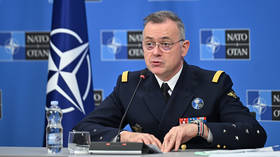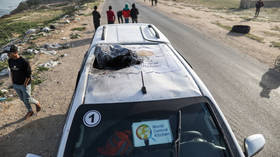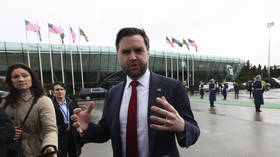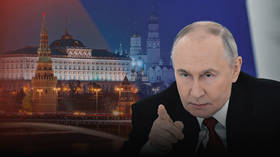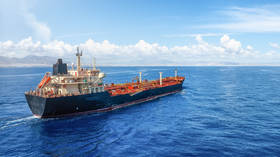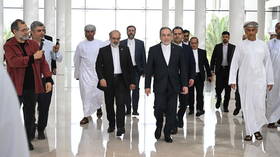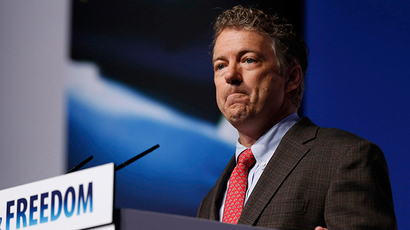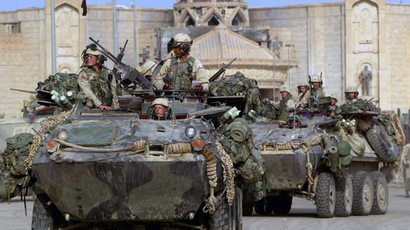Washington concealed US troops exposure to chemical weapons in Iraq – intel docs
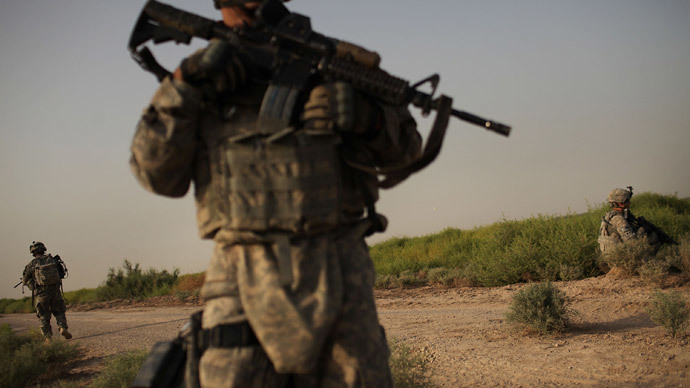
American soldiers discovered more than 4,990 chemical munitions in Iraq, according to Iraqi and US officials and previously classified intelligence documents, which may now be in the hands of Islamic State militants.
For much of the duration of the Iraq War, which saw US soldiers open a military invasion against the Ba’athist country in March 2003 amid tremendous international outcry, US forces "repeatedly encountered, and on six occasions were wounded by, chemical weapons” leftover from the Iraq-Iran War, reported the New York Times.
READ MORE: Choose your epidemic: More UK soldiers fighting Ebola than terrorism
The hefty eight-part report, largely based on interviews and
highly redacted intelligence documents, said “17 American
service members and seven Iraqi police officers…were exposed to
nerve or mustard agents” between 2004 and 2011.
The article detailed the harrowing chemical encounters of several servicemen, including Sergeant Duling, who in August 2008 unwittingly led his unit into a munitions pit outside Baghdad.
“This is mustard agent,” he said, after carrying out an examination of the contents of the rusting artillery. “We’ve all been exposed.”
At first blush, it may seem inconceivable that the United States, which had argued for an invasion of Iraq on the grounds that it was harboring weapons of mass destruction (an accusation that the UN weapons inspectors on the ground in Iraq prior to the American invasion/occupation had proven to be incorrect), would want to keep the discovery of WMDs in Iraq under wraps.
One reason for the hush-up, the report suggests, is that the United States was largely responsible for Iraq having chemical weapons in the first place.
“In five of six incidents in which troops were wounded by chemical agents, the munitions appeared to have been designed in the United States, manufactured in Europe and filled in chemical agent production lines built in Iraq by Western companies,” it said.
Many of the casings were M110s, which the United States military had developed decades ago to disperse white phosphorous or mustard gas.

“The United States also exported the shells and the technology behind them,” the Times reported. “When Iraq went arms shopping in the 1980s, it found manufacturers in Italy and Spain willing to deal their copies. By 1988, these two countries alone had sold Iraq 85,000 empty M110-type shells, according to confidential United Nations documents.”
This is where the story begins to get very disturbing.
During the Iraq-Iran War (1980-1988), Baghdad actively sought the development of chemical weapons with the help of a number of Western countries, including the United States, West Germany, the Netherlands, the United Kingdom, and France, according to internal Iraqi documents.
It is has already been widely documented that at least 50,000 Iranian civilians and soldiers were killed by Iraqi chemical weapons in the course of the war.
As the Times report detailed, many of the chemical weapons incidents were centered around the now largely destroyed Muthanna State Establishment, which was “the center of Iraqi chemical agent production in the 1980s.”
This is especially worrying because since June, that sensitive area has been in the possession of the Islamic State, which recently appeared on the scene in northern Iraq and Syria with public displays of extreme savagery that included the alleged beheading of American and British journalists and aid workers, not to mention Christian babies.
So the question as to how the United States kept the exposure of its troops to chemical weapons contamination in Iraq secret for so long has taken a back seat to the more immediate question as to whether or not the Islamic State has also gained possession of chemical weapons.
On Sunday, former Vice President Dick Cheney predicted that the next attack on the United States would be “far deadlier” than the last one.
“We're in a very dangerous period,” Cheney, who regularly appears on the US talkshow circuit despite the dismal record of the Bush administration, told the Weekly Standard's Bill Kristol in a video interview. “I think it's more threatening than the period before 9/11.
"I think 9/11 will turn out to be not nearly as bad as the next mass casualty attack against the United States, which, if and when it comes, will be with something far deadlier than airline tickets and box cutters."
Does Mr. Cheney know something that the American public - much as it has been clueless about the chemical weapons in Iraq - does not yet know about?
That would be a far more disturbing revelation.


